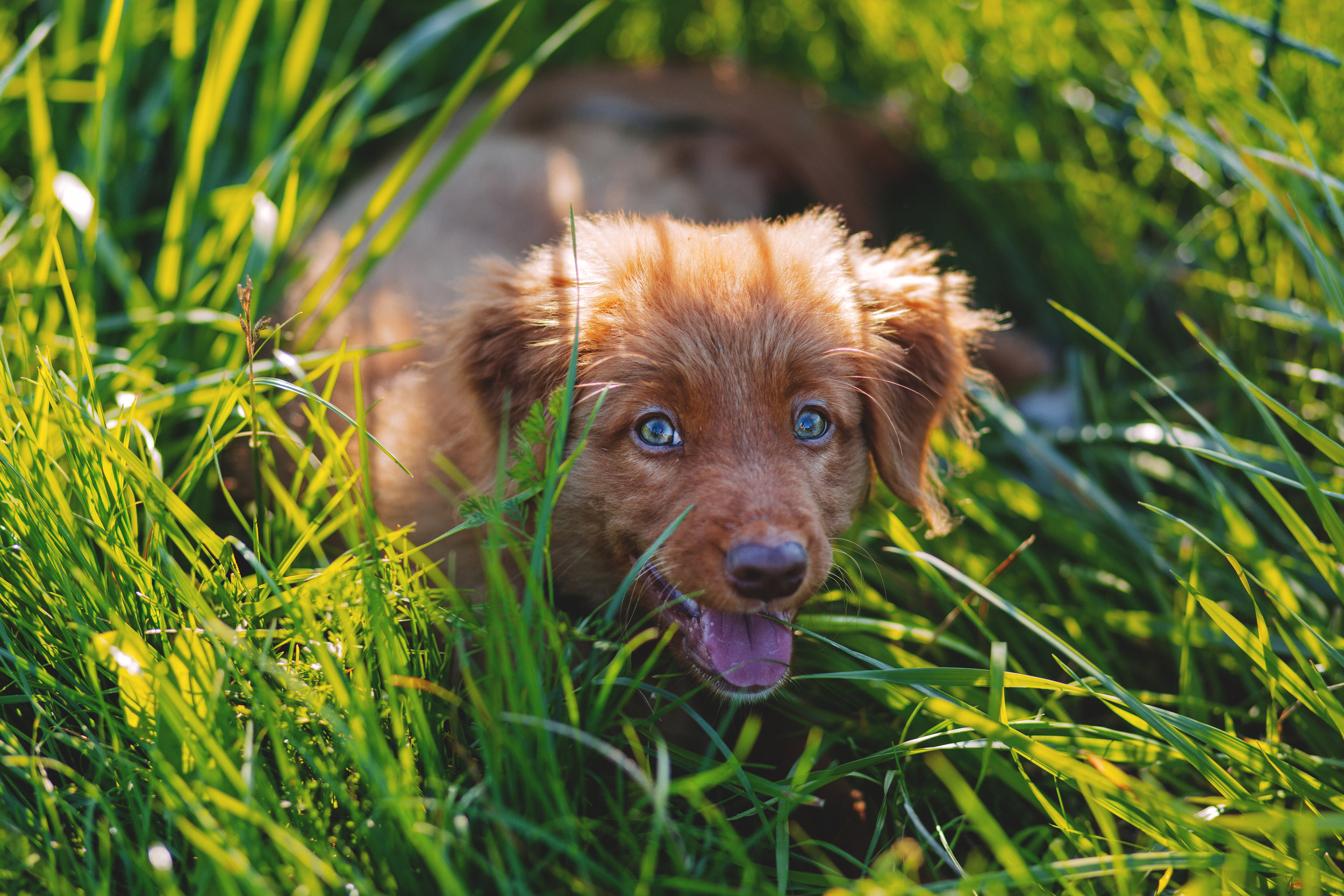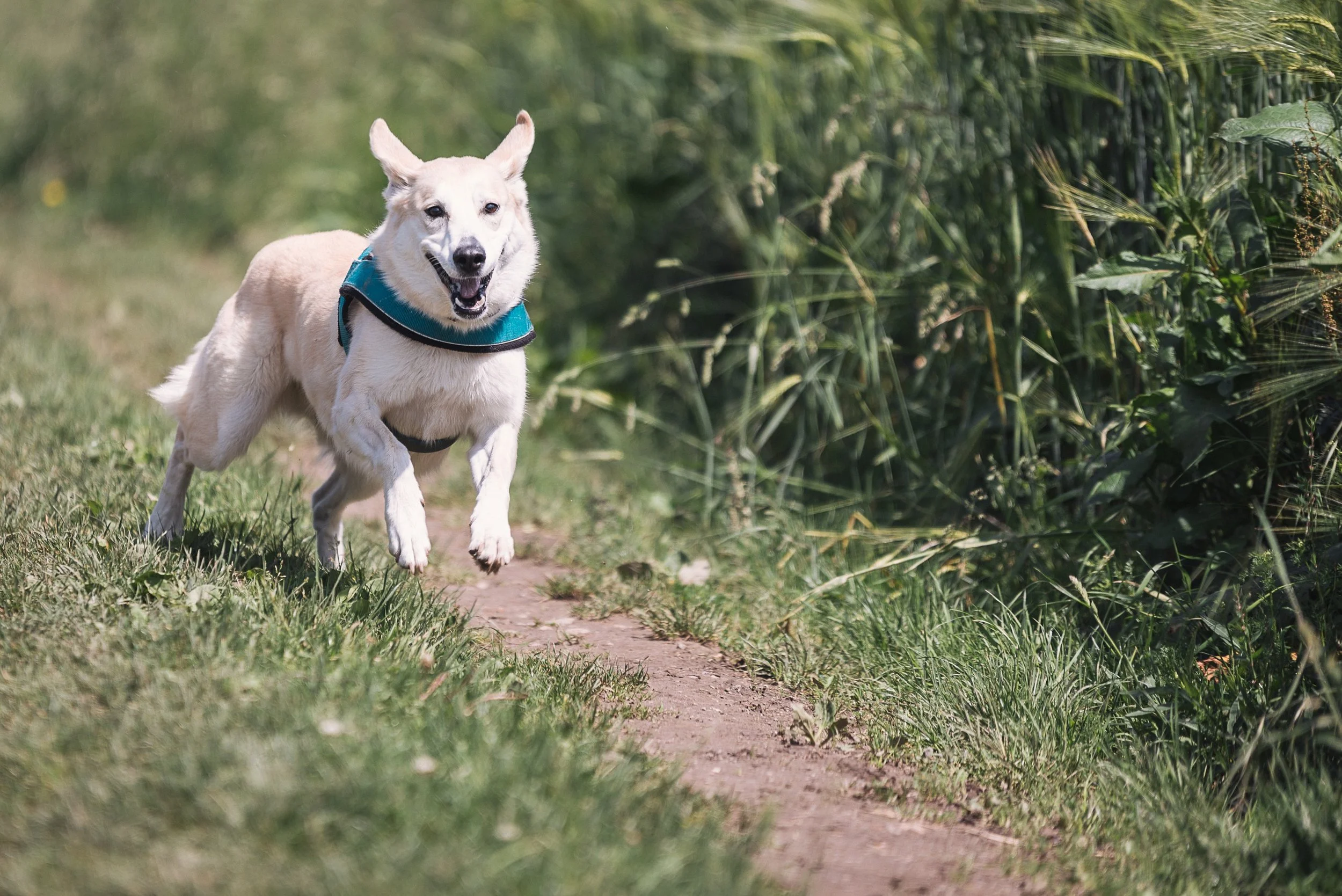When To Train Your Puppy
/People often wonder when they should start worrying about training for their new puppy. In a word? Now!
Seriously, though, in a perfect world training your new puppy begins before you even bring them home. Some questions to consider:
- Do you have a puppy-proof room?
- Have you made plans for potty training?
- For socialization?
- Who will care for your puppy when you're busy at work, or school, or out living life?
These are all questions that should be considered before you bring a puppy home, and definitely count as part of "training."
Puppy Proofing
Puppies have a knack for finding anything and everything you don't want them to. When you puppy-proof a room, you're making it safe for them to be themselves. Here's what you'll want to consider when setting up your puppy's new room.
Choose an appropriate space. Where your puppy's room will be depends on what you have available. Kitchens, mudrooms, and finished basements can be good prospects.
Remove stray items. This is the most obvious part of puppy-proofing and is what most people immediately think of. Anything you leave laying around in your puppy's room will be chewed on.
Safely secure electrical cords. Cords are fun to chew but very dangerous. Ensure that all electrical cords are out of reach.
Protect your molding. Puppies often chew on baseboards and accent molding. Consider using an exercise pen or several connected together to protect any walls, baseboards, or molding you think your puppy may want to chew.
Provide water. Your puppy should always have access to fresh clean water.
Make it fun. Your puppy's room, like a kid's room, should be where all their favorite things are. Chew toys, treat dispensing toys, and a soft bed or blankets (that you don't mind getting chewed) are among the things that can keep your puppy's room attractive to them.
Having your puppy's room ready for them before they come home can be a real stress saver in the long run. You'll have the peace of mind of knowing you're prepared, rather than feeling like you're constantly putting out fires.
Potty Training
You need to plan ahead for potty training. An ounce of prevention is worth a pound of cure and setting your puppy up with good habits from day one can make a world of difference.
Set them up to succeed. Take your puppy outside to potty frequently. Take them to the same spot so they start to associate that as their potty spot.
Reward them for getting it right. Always show your puppy how happy you are when they potty where you want them to. Do it immediately, don't wait to get back inside.
Avoid punishment. Trying to punish a puppy for potty accidents doesn't make any sense. Your puppy has no idea why you're angry. Clean up the mess and do a better job next time of getting them out in time.
Knowing what your plan for potty training is before you have your puppy home can save you a major headache.
Socialization
Socialization is the process of exposing your puppy to new situations in a way that will prevent them from being afraid, anxious, or otherwise uneasy in those situations as adults.
Expose, don't overexpose. An outing doesn't need to be intense - in fact, intense stimuli can backfire and traumatize a young puppy. Shorter trips with fewer meetings can be very beneficial.
Go where you'll need to go. Your puppy will have places they'll need to get used to. The vet's office is definitely one of them. Plan your outings based on what your planned lifestyle with your dog will be. For vet visits, keep it short and sweet. Meet one or two friendly people, get some treats, and head home (this is just a social vet visit, not a medical one). Grooming salons, pet stores, and parks are likely places you'll want to bring your dog as they get older as well. Keep the same concepts in mind.
Focus on the bond. The most important part of your outings for socialization in strange new places like parks is to allow your puppy to experience all the new stimuli while maintaining a focus on how awesome you are. Bring toys and treats. Provide play opportunities to show off how interesting you are.
Proper socialization, and having a plan in place ahead of time for it, is a major part of raising your puppy into a well-adjusted dog.
Puppy Sitting
You probably aren't planning to take two months off work after bringing your puppy home. If you are, that's fantastic, but most of us can't manage to do that. Working a nine to five would mean your new puppy is left alone for up to ten hours per day! That's a really hard thing for a developing mind to handle. Coordinating with friends, family, and professional pet sitters to provide several play and potty breaks throughout the day is crucial for young puppies and their development.
Foundation Training
Basic foundation training can begin the same day you bring your new puppy home as well. Dogs are always learning, so they've started their training whether you wanted to or not. Getting some help sooner rather than later can prevent a whole host of behavior problems. Professional training ensures your puppy gets off on the right paw.
Benjamin is the owner of Good Doggy Saratoga. You can follow him on Facebook.
If you liked this article, please like and share below. You can also subscribe to receive blog updates in your email.





